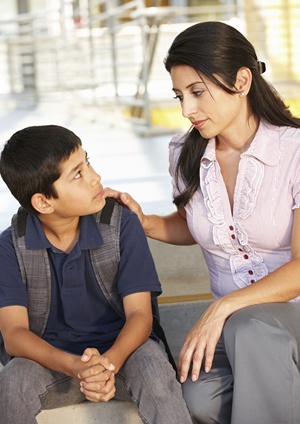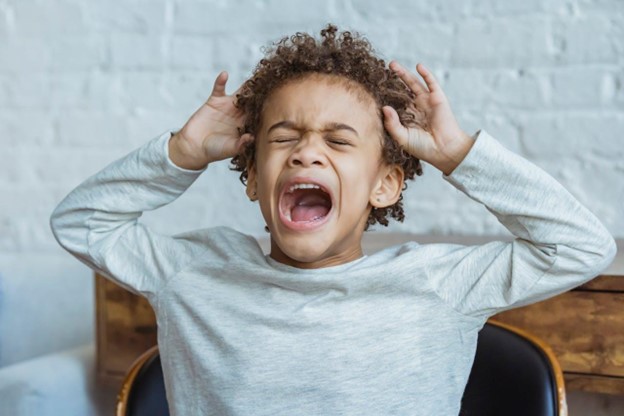How Meditation Can Affect Your Child During Pregnancy
Pregnancy might potentially cause unease for some women, stirring up concerns about the wellbeing and growth of their child. Studies suggest that meditation can substantially lower this feeling of unease, proposing a tranquillity-based resolution.
This piece will examine how pregnancy meditation aids you and your baby, directing you to a more positive and tranquil pregnancy period. Find tranquillity together.
Benefits of Prenatal Meditation for You and Your Child
Prenatal meditation brings remarkable benefits for both you and your unborn child, playing a crucial role in ensuring mental and physical wellbeing. It acts as a powerful tool, offering stress reduction, enhanced infant development, and improved maternal health during the journey of pregnancy. Consult your healthcare provider, like an OBGYN, first before doing such.
Relieves anxiety and stress
Meditation during pregnancy significantly reduces the body’s stress response and decreases cortisol levels, contributing to a calmer mental state for both mother and child. This cutback in anxiety and stress is crucial for maternal wellbeing and also plays a vital role in fetal health.
Studies confirm that diminished stress levels during pregnancy can reduce the risk of premature birth, highlighting meditation as an effective tool for managing prenatal stress.
Practising mindfulness and meditation creates a tranquil environment favourable to infant development. It increases positive feelings, strengthens immune function, and maintains mental health in pregnancy.
By including meditation in their daily regimen, expectant mothers can care for their emotional health, leading to better physical outcomes for themselves and their growing babies. This practice efficiently addresses preventing depression while preparing women mentally and physically for childbirth.
Nurtures development
Prenatal meditation significantly boosts the development of your unborn child. Research has consistently shown that reduced stress levels in expecting mothers, achieved through meditative practices, can lead to a healthier fetal environment.
This nurturing setting encourages optimal growth and minimises the risk of premature birth. It’s clear that engaging in mindfulness during pregnancy equips babies with a strong foundation for both physical and mental health.
These benefits extend beyond mere physical well-being; they also lay down early markers for positive infant behaviour. Studies draw connections between maternal meditation habits and enhanced infant immune function, suggesting that regular prenatal meditation might play a key role in building a robust start for your child’s life journey.
Now, let us move on to how these practices can improve sleep patterns during pregnancy.
Improves sleep
Meditation during pregnancy significantly improves sleep quality by reducing the body’s stress response and lowering cortisol levels. These benefits are crucial, as good sleep is essential for both maternal health and fetal development.
Studies suggest that mindfulness practices can directly contribute to a more restful night, helping expectant mothers manage common pregnancy-related sleep disturbances.
Practicing meditation for pregnancy can lead to better sleep, contributing to overall wellbeing and a healthier gestational period.
The reduction of stress through meditation also plays a key role in preventing premature births—an outcome linked with elevated stress levels. By fostering mental calmness and relaxation, pregnant women can create a nurturing environment for themselves and their developing baby, setting the stage for healthy infant behaviour post-birth.
Aids bonding and connection
Following the enhancement in rest, prenatal meditation also improves the mother-child relationship by encouraging a deeper link and connection. Engaging in awareness exercises during pregnancy enables expecting mothers to foster a sense of intimacy with their unborn child.
This period of tranquillity and concentration reduces stress and as a result, helps mothers tune into their baby’s movements and responses. Research emphasises that lowered cortisol levels, due to stress reduction through meditation, have a positive effect on infant behaviour and maternal attachment.
Regular meditation for pregnancy health turns instances of silent reflection into chances for emotionally connecting with the baby. These moments can improve maternal wellbeing by generating positive feelings about childbirth preparation.
This practice builds a base for nurturing infant development even before birth, demonstrating the importance of mental peace and relaxation techniques for parental bonding.
How to Incorporate Meditation During Pregnancy
To start including meditation in your pregnancy routine, find a few quiet moments each day to sit peacefully and focus on your breathing. Experiment with various meditation techniques to discover what feels best for you, aiming to foster a deeper connection between you and your baby. There are many meditation related pregnancy online courses which can also help you on your journey.
Starting slow
Introducing prenatal meditation can be as simple as setting aside a few minutes each day. This method encourages pregnant women to calmly ease into the practice without feeling burdened.
By commencing gently, they can slowly incorporate meditation into their daily routine, enabling them to become confident and habitual.
The emphasis on brief sessions aids in alleviating stress and tension, essential for preserving maternal health during gestation. Studies underline that such methods support the mother’s emotional wellbeing and also have positive effects on the development of the unborn child, possibly reducing the chance of preterm birth.
Through these initial steps, mothers-to-be establish the groundwork for fostering a closer relationship with their unborn child while improving their own physical and emotional wellbeing.
Exploring different techniques
Once you’ve initiated your soft meditation journey, it’s an opportune moment to inspect divergent methods that could proliferate the richness of your prenatal meditation experience.
Studies indicate a range of meditation techniques can notably bolster maternal health and even augment fetal health, pointing towards the significance of discovering a method that aligns with your personal needs.
Ranging from mindfulness methods aimed at diminishing pregnancy anxiety to concentrated breathing exercises intended for mental tranquility and relaxation, every technique brings unique advantages.
For example, establishing a connection with your baby through meditation assists in fetal development and also fortifies the relationship between mother and child.
Implementing guided meditations also provides a powerful method to imbue structure into your practice, particularly if managing stress reactions during pregnancy is a key consideration.
These sessions frequently ingrate positive affirmations directly correlated to infant behaviour and maternal wellbeing, offering both emotional comfort and physical benefits. With the evidence suggesting improved glucose management and diminished premature birth risks for meditating mothers, the inclusion of these diverse techniques becomes a vital aspect of prenatal care.
Choice of an optimal blend of mindfulness during pregnancy can set the stage for improved immune functions, superior sleep patterns and overall positive emotions throughout this transformative period.
Using guided meditations
Guided meditations are a potent tool to attain a peaceful mind and minimise stress during pregnancy. These sessions, conducted by skilled tutors, offer straightforward guidance on directing your mind and unwinding your body.
They often involve imagery methods that assist you in establishing a bond with your baby, cultivating a profound feeling of connection and maternal wellbeing. By adhering to these directed exercises, you can effectively diminish cortisol levels in your body, considerably reducing the stress response that could impact fetal health.
Studies acknowledge the advantage of mindfulness strategies like guided meditations during pregnancy due to their beneficial influence on both physical health factors such as better glucose regulation and mental health advantages like preventing depression.
This method nurtures infant growth and also equips mothers for childbirth by instilling emotions of assurance and calmness.
Consistently meditating can improve both maternal and child health by providing a tranquil environment for emotional connection.
Focusing on your breath
Concentrating on your breath during prenatal meditation can notably reduce stress levels, contributing to a lowering effect in your body’s cortisol response. This habit aids maternal wellbeing by promoting mental serenity and easing symptoms of depression.
Studies emphasise that such mindfulness habits during pregnancy optimise immune function, which is favourable for both the mother and developing child. Increased glucose control and a reduced likelihood of experiencing pain are among the outlined physical health benefits.
By focusing on breathing, mothers establish a peaceful environment for their babies, fostering their growth effectively. Research suggests this technique aids in reducing stress and plays a pivotal part in the wellbeing of the fetus, potentially lessening premature birth risks.
This method equips expectant women to form a profound connection with their unborn child, reinforcing relationships before birth.
Establishing a serene atmosphere becomes the subsequent phase after mastering the ability to focus on one’s breath.
Creating a calming environment
Crafting a soothing atmosphere is crucial for performing prenatal meditation effectively. Choose a noiseless, cosy place where disturbances are minimal to foster feelings of peace and security.
This environment helps lower cortisol levels, endorsing both the mother’s wellbeing and the baby’s health, as suggested by research. Subdued lighting, maybe from candles or adjustable illumination devices, along with calming background musics or nature’s melodies can further intensify this peaceful ambiance.
Make use of cosy seating or pillows that support your body without causing tension. Research shows that such settings assist in diminishing stress and also play a positive role in infant development and mental health during gestation.
This attentive setup promotes a deeply connected and amicable bond with your baby through meditation exercises, in line with evidence indicating betterment like glucose regulation and alleviation of pain in physical health.
Listening to your body
Listening to your body during pregnancy allows you to tune in to what feels right for both you and your baby. It involves observing signs of tiredness or stress and responding with meditation practices that promote relaxation and mental calmness.
This attentive practice can reduce cortisol levels, directly benefiting fetal health by decreasing the maternal stress response.
Adopting mindfulness practices during this time nurtures infant development as well as enhances maternal wellbeing. Studies associate such techniques with reduced risks of premature birth, improved glucose control, and lessened pain experience.
By focusing on bodily sensations and breath, pregnant individuals can connect more deeply with their developing child, fostering a strong bond even before childbirth.
Staying gentle with yourself
Practising meditation during pregnancy functions as an effective method for stress management, reinforcing maternal wellbeing, and fostering infant growth. It diminishes cortisol levels, subsequently mitigating the body’s stress response, found to benefit both mother and offspring.
Yet within these organised practices and anticipated outcomes, adopting a gentle attitude with oneself turns pivotal. This includes acknowledging your limits and granting yourself the permission to rest or adjust your practice as needed, free of judgement.
Meditation can positively influence energy levels and general wellness during this period of transformation. Via mindfulness practices refined for pregnancy health, women find ways to establish profound bonds with their babies, mentally preparing them for childbirth while promoting fetal growth.
Each round of prenatal meditation offers a chance to cultivate positive emotions and intensify parental bonding; thus, upholding kindness with oneself enriches this journey further by establishing a base of affection and care that extends past birth into parenting.













